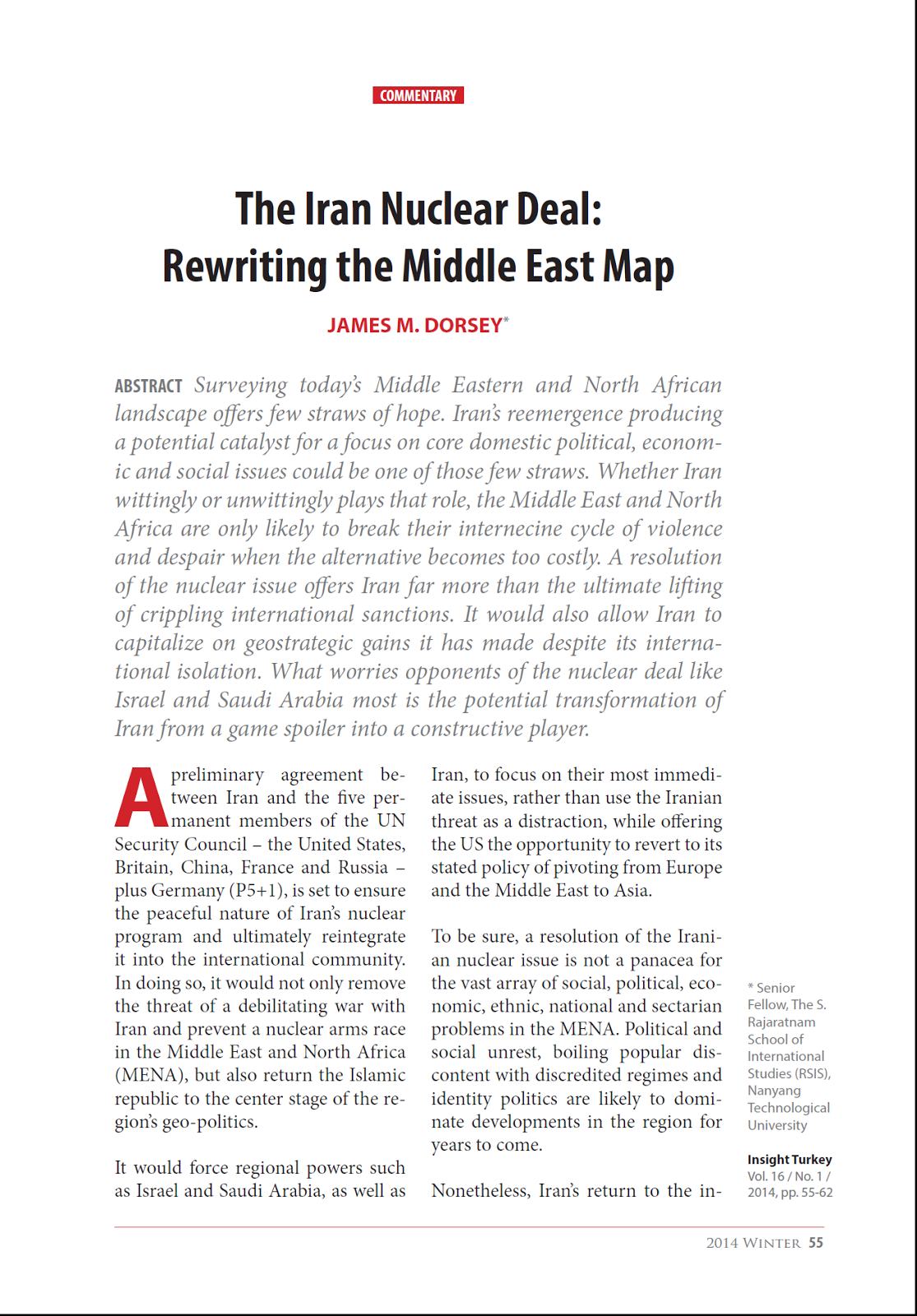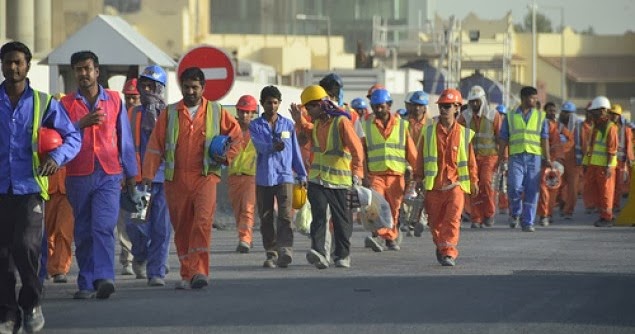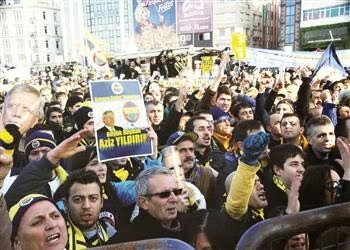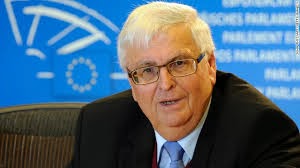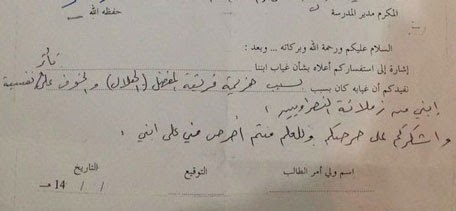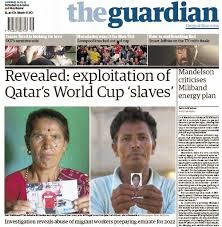By James M. Dorsey A perceived lack of real progress in the improvement of conditions for foreign labour, aggravated by a Qatari reluctance to engage in public debate beyond platitudes, is undermining the soft power goals underlying the Gulf state’s sports strategy. The silver lining in the public relations beating Qatar is taking is that it forces international sports associations like FIFA, the world’s governing soccer body, to include issues of labour and other rights in their policy towards hosts of mega events like the 2022 World Cup. That was already evident last year when the International Olympics Committee (IOC) rejected Qatar’s bid to host the 2020 Olympics, in part, according to labour activists, because of workers’ material conditions. FIFA, in its latest response to persistent media reporting on onerous living and working conditions of foreign workers who constitute a majority of the Gulf state’s population and are building vast infrastructure projects
